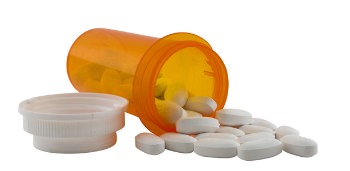When applying for life insurance protection, the underwriters at the insurance company will need to review a wide variety of factors in order to determine whether the applicant will be qualified for the coverage.
Many of these criteria will center around the person’s overall health and health history as this will play a key role in the individual’s life expectancy. In turn, if a person has certain health conditions, he or she may also be taking various medications – which will also be reviewed.
For those who have diabetes, one of the medications that may be recommended is bile acid sequestrates. In some instances, the taking of this medication could have an effect on a person’s application for coverage.
However, because all life insurers actually have slightly different criteria for underwriting their applicants for coverage, it is important to work with a company or an agency that is knowledgeable about working with higher risk applicants – as it could improve your chances of getting coverage, as well as help to obtain a more favorable premium price.
How Bile Acid Sequestrates Can Have an Effect on Your Life Insurance Application
Bile acid sequestrates are taken by those who have diabetes, for the purpose of lowering high cholesterol. These medications are typically sold under the brand names of Welchol, Colestid, Locholest, and Prevalite.
When taking this type of medication, the sequestrants will bind to bile acids in the intestine, in turn, preventing them from being reabsorbed into the blood. Therefore, the liver can produce more bile in order to replace the bile that has been lost.
Because the individual’s body requires more cholesterol to manufacture more bile, the liver will use up the cholesterol that is in the person’s blood – which will then reduce the amount of the LDL cholesterol that is circulating in the blood.
What Will the Life Insurance Underwriters Need to Know About You?
When applying for life insurance coverage, it will typically be required to submit an application for coverage. Here, basic details such as contact information, health and health history will be covered.
For applicants who have conditions such as diabetes – and who take medications such as bile acid sequestrates – it is likely that you will also need to answer more in-depth questions so that the underwriters can obtain a clearer picture of your overall health and medical condition. Some or all of these additional questions could include the following:
- When were you initially prescribed with the bile acid sequestrates to help with the management and / or the control of your diabetic condition?
- Has the amount of your bile acid sequestrates changed over time?
- How – and how well – are the bile acid sequestrates controlling and / or managing your diabetic condition?
- Are you managing and / or controlling your diabetic condition in any other manner, such as through diet and / or exercise?
- What are your most recent blood sugar levels?
- What are your most recent A1C levels?
- Have you had any relevant testing performed over the past six months due to your diabetic condition?
It is likely that, due to your diabetic condition, and your taking of bile acid sequestrates, that the life insurance underwriters will want to review your medical records from your primary care physician, and / or from any medical specialist that you may see.
Also, it is typically required that those who are applying for life insurance coverage will need to undergo a medical exam. This exam will take only about 30 minutes, and it will consist of meeting with a paramedical in your home or another convenient location. During the exam, a blood pressure and a heart rate reading will be taken, as well as a blood and urine sample.
How Much is Coverage for Those on Bile Acid Sequestrates?
The cost of your life insurance coverage will be dependent upon the result of the underwriters’ review. If it is felt that your health – even with your type 2 diabetes – is good, then you could qualify for a Standard policy class. If so, your premium could be in line with that of an average policyholder.
If, however, it is felt that your health is not on par with an average policyholder – yet it is not poor enough to decline, and then you could be granted a Substandard class of policy. If this is the case, then your premium will be higher than that of the average policyholder.
If your medically underwritten application for coverage is denied, then you could still have the option of applying for a no medical exam life insurance policy. There are many applicants who can still qualify for coverage with various health conditions with these plans. While the premiums on a no medical exam life insurance policy will be higher due to the added risk to the life insurer, this could provide you with the opportunity to purchase the insurance protection that you need.
Getting Lower Rates
When you’re apply for life insurance coverage as an applicant with diabetes, then you’re going to be facing higher rates for your plan, but that doesn’t mean that you have to pay a fortune for your coverage every month. There are several ways that you can secure better rates from the insurance company and keep more money in your pocket. Making a few simple changes can save you hundreds and hundreds of dollars.
The first thing that you should do is cut out any tobacco that you currently use. If you’re listed as a smoker on your application, you’re going to be facing much higher rates for your coverage. In fact, smokers are going to pay at least twice as much. If you want to save money, quitting smoking is one of the best ways to do that.
The next way that you can save money is by improving your overall health. Before you get accepted for coverage, the company is going to require that you take a medical exam, and the results of the exam are going to play a major role in how much you pay for your coverage. If you want to save money, you will need to get better results from your medical exam.
Finding the Best Life Insurance Premiums for Diabetics on Bile Acid Sequestrates
If you are seeking life insurance for a diabetic on bile acid sequestrates, then we can help. We work with many of the top life insurance carriers in the marketplace today that will work with those clients who suffer from type 1 or type 2 diabetes – and we can help you to find the carrier and the policy that will be right for you. When you are ready to move forward with the process, then just simply fill out the form on this page.
Should you find that you have any questions regarding finding the right life insurance coverage for someone who is taking bile acid sequestrates – or even if you just happen to have additional questions or concerns about life insurance in general – please feel free to contact us. We can be reached directly via phone, toll-free, by dialing 877-801-4402. There are many options that are available to you today. So, contact us now – we’re here to help.



